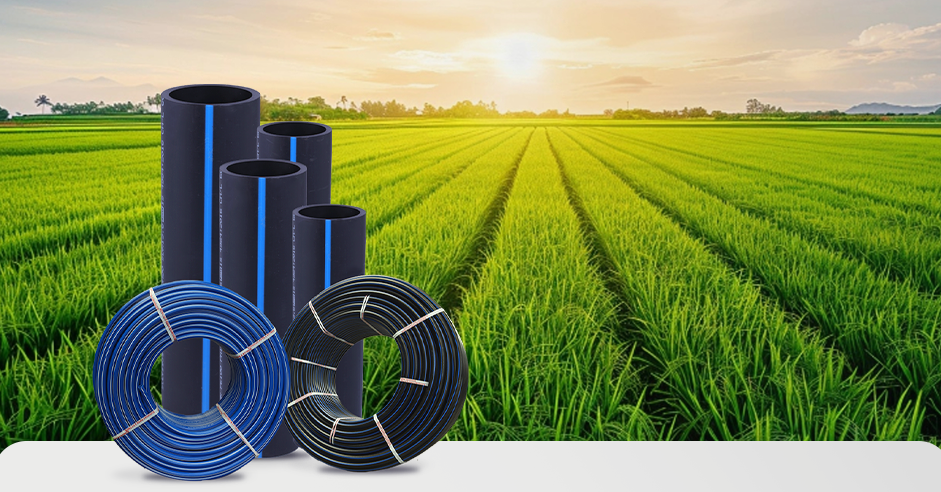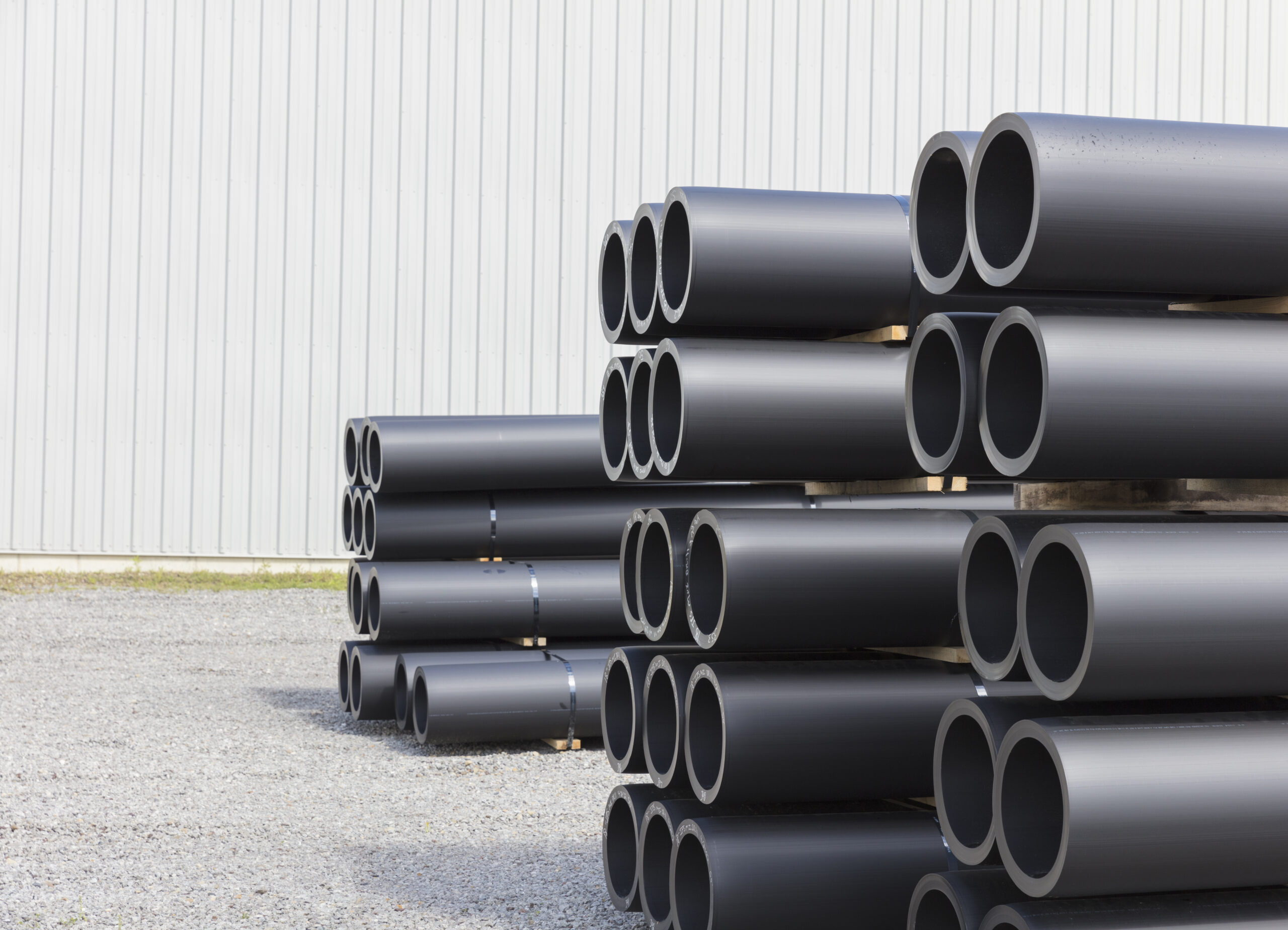A Comprehensive Overview to the Different Uses HDPE Pipeline in Building and Industry
HDPE pipelines have emerged as an essential element in modern construction and industrial applications. Their one-of-a-kind homes, such as resistance to rust and light-weight design, make them suitable for a vast array of usages. From water systems to farming irrigation, HDPE pipelines offer options that improve performance and sustainability. Recognizing their diverse applications is important for professionals looking to enhance infrastructure. What particular benefits do these pipelines offer each market?
Water Supply and Distribution Equipments
Water and circulation systems are vital components of city infrastructure, often relying on high-density polyethylene (HDPE) pipelines for their toughness and effectiveness. These systems transport potable water from treatment facilities to customers, making certain accessibility and safety and security. HDPE pipelines are preferred for their resistance to deterioration, chemicals, and severe temperature levels, which boosts their durability and minimizes upkeep costs. In addition, their light-weight nature allows for easier setup and transport, making them suitable for various urban and country applications.
The versatility of HDPE pipes allows them to be set up in limited spaces and around obstacles, minimizing the need for substantial excavation (Texas hdpe pipe manufacturer). In addition, their smooth indoor surface decreases friction losses, improving water circulation rates. As cities remain to grow, the demand for reliable water system systems enhances, positioning HDPE pipelines as a lasting remedy for contemporary framework jobs. Their tested record makes them a preferred option amongst engineers and city coordinators alike
Wastewater Monitoring and Therapy
Reliable wastewater monitoring and treatment are necessary for maintaining public health and ecological top quality. HDPE pipelines play a vital function in this process because of their durability, resistance to rust, and capability to withstand severe chemicals. These pipelines are typically used in various applications, including sewer system, stormwater water drainage, and wastewater therapy centers. Their light-weight nature promotes simpler setup and transport, minimizing labor expenses and time.
On top of that, HDPE pipes have a smooth indoor surface that decreases rubbing loss, advertising efficient circulation rates. They are also much less susceptible to leaks and failures contrasted to conventional products, ensuring that contaminants are had effectively. Their flexibility permits for adaptability in various soil conditions, making them appropriate for varied ecological setups. As industries increasingly focus on sustainable methods, using HDPE pipelines in wastewater administration systems lines up with goals for decreasing environmental influence and boosting resource healing.
Agricultural Watering Solutions
In farming settings, efficient irrigation remedies are necessary for maximizing crop returns and handling water resources. HDPE (High-Density Polyethylene) pipelines play an essential duty in modern-day watering systems because of their resilience, versatility, and resistance to deterioration. Their capacity to hold up against high pressures makes them perfect for both surface and subsurface irrigation applications, making certain uniform water circulation throughout fields.
Farmers can utilize HDPE pipes in drip irrigation systems, which deliver water straight to plant origins, reducing waste and promoting healthy growth. In addition, these pipes are light-weight and easy to set up, lowering labor expenses and setup time. Their long life-span and low upkeep requirements additionally enhance their charm in agricultural methods.
HDPE pipelines are environmentally friendly, as they can be reused and do not leach hazardous chemicals into the soil. This makes them a sustainable selection for farmers aiming to adopt environmentally friendly agricultural techniques while making best use of productivity.
Industrial Applications and Processes
Convenience is a characteristic of HDPE pipes, making them indispensable in different commercial applications and procedures. These pipes are commonly utilized in chemical handling markets due to their outstanding resistance to a variety of destructive compounds. HDPE's light-weight nature, integrated with high tensile toughness, enables easy installment and long-lasting efficiency in demanding atmospheres.
In the oil you could check here and gas market, HDPE pipes play a crucial duty in moving hydrocarbons and gases, thanks to their sturdiness and adaptability - Midland TX HDPE Pipe Fittings in Stock. In addition, they are employed in mining procedures for the transportation of slurry and various other products, where conventional piping systems may stop working
Additionally, HDPE pipes are increasingly utilized in making centers for water lines and wastewater administration. Their capacity to withstand best site extreme temperatures and pressures makes them ideal for a range of commercial processes. On the whole, HDPE pipelines contribute greatly to effectiveness and security across diverse commercial applications.
Stormwater Management and Drainage Equipments
Stormwater administration and drainage systems are important elements in metropolitan framework, designed to handle excess rainfall and lower flooding dangers. High-density polyethylene (HDPE) pipes are significantly made use of in these systems as a result of their sturdiness, adaptability, and resistance to rust. These pipes effectively transport stormwater far from populated locations, reducing surface area runoff and stopping waterlogging.
HDPE's light-weight nature assists in less complicated setup, lowering labor expenses and building and construction time. In addition, its resistance to chemicals and environmental stressors assurances long life and integrity in numerous climates. Along with traditional drainage applications, HDPE pipes are likewise used in innovative remedies such as environment-friendly infrastructure, which consists of rainfall yards and absorptive pavements.

Often Asked Inquiries
Exactly How Does HDPE Pipeline Contrast to PVC Pipe in Expense?
In general, HDPE pipe tends to be much more costly than PVC pipe due to its boosted resilience and adaptability. Nonetheless, lasting expense considerations, such as maintenance and lifespan, might favor HDPE in specific applications.

What Is the Life Expectancy of HDPE Water Lines Under Varying Problems?
HDPE pipes usually have a life-span of 50 to 100 years, relying on ecological problems, installment methods, and use. Factors such as temperature level, dirt kind, and direct exposure to chemicals can greatly influence their durability.
Can HDPE Water Lines Be Recycled After Use?
Yes, HDPE pipelines can be reused after use. The reusing process entails thawing down the material, allowing it to be repurposed into brand-new items, More hints consequently advertising sustainability and lowering ecological influence related to plastic waste.
Are There Any Particular Setup Difficulties With HDPE Pipes?
Setup obstacles with HDPE pipes include correct jointing strategies, guaranteeing sufficient trench problems, and handling thermal expansion. Furthermore, proficient labor is needed to manage specific equipment, which can complicate the installation procedure in different environments.

What Certifications Should I Try To Find When Buying HDPE Pipes?
When purchasing HDPE pipelines, one should seek certifications such as ASTM, AASHTO, and ISO, which confirm high quality and conformity with sector requirements, assuring sturdiness and performance in various applications. - Pipe Supplier American Plastics Midland